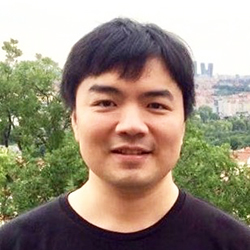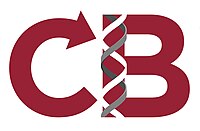
Carnegie Mellon University (CMU) is a private research university in Pittsburgh, Pennsylvania. The institution was originally established in 1900 by Andrew Carnegie as the Carnegie Technical Schools. In 1912, it became the Carnegie Institute of Technology and began granting four-year degrees. In 1967, it became the current-day Carnegie Mellon University through its merger with the Mellon Institute of Industrial Research, founded in 1913 by Andrew Mellon and Richard B. Mellon and formerly a part of the University of Pittsburgh.

The School of Computer Science (SCS) at Carnegie Mellon University in Pittsburgh, Pennsylvania, US is a school for computer science established in 1988. It has been consistently ranked among the top computer science programs over the decades. As of 2022 U.S. News & World Report ranks the graduate program as tied for second with Stanford University and University of California, Berkeley. It is ranked second in the United States on Computer Science Open Rankings, which combines scores from multiple independent rankings.

The Mellon College of Science (MCS) is part of Carnegie Mellon University in Pittsburgh, Pennsylvania, US. The college is named for the Mellon family, founders of the Mellon Institute of Industrial Research, a predecessor of Carnegie Mellon University.

Carnegie Mellon Silicon Valley is a degree-granting branch campus of Carnegie Mellon University located in the heart of Silicon Valley in Mountain View, California. It was established in 2002 at the NASA Ames Research Center in Moffett Field.

Lenore Carol Blum is an American computer scientist and mathematician who has made contributions to the theories of real number computation, cryptography, and pseudorandom number generation. She was a distinguished career professor of computer science at Carnegie Mellon University until 2019 and is currently a professor in residence at the University of California, Berkeley. She is also known for her efforts to increase diversity in mathematics and computer science.

The Carnegie Mellon School of Art at Carnegie Mellon University in Pittsburgh, Pennsylvania is a degree-granting institution and a division of the Carnegie Mellon College of Fine Arts. The School of Art was preceded by the School of Applied Design, founded in 1906. In 1967, the School of Art separated from the School of Design and became devoted to visual fine arts.

Jaime Guillermo Carbonell was a computer scientist who made seminal contributions to the development of natural language processing tools and technologies. His extensive research in machine translation resulted in the development of several state-of-the-art language translation and artificial intelligence systems. He earned his B.S. degrees in Physics and in Mathematics from MIT in 1975 and did his Ph.D. under Dr. Roger Schank at Yale University in 1979. He joined Carnegie Mellon University as an assistant professor of computer science in 1979 and lived in Pittsburgh from then. He was affiliated with the Language Technologies Institute, Computer Science Department, Machine Learning Department, and Computational Biology Department at Carnegie Mellon.

Manuela Maria Veloso is the Head of J.P. Morgan AI Research & Herbert A. Simon University Professor Emeritus in the School of Computer Science at Carnegie Mellon University, where she was previously Head of the Machine Learning Department. She served as president of Association for the Advancement of Artificial Intelligence (AAAI) until 2014, and the co-founder and a Past President of the RoboCup Federation. She is a fellow of AAAI, Institute of Electrical and Electronics Engineers (IEEE), American Association for the Advancement of Science (AAAS), and Association for Computing Machinery (ACM). She is an international expert in artificial intelligence and robotics.
Bin He is a Chinese American biomedical engineering scientist. He is the Trustee Professor of the Department of Biomedical Engineering, professor by courtesy in the Department of Electrical and Computer Engineering, and Professor of Neuroscience Institute, and was the head of the department of Biomedical Engineering at Carnegie Mellon University. Prior, he was Distinguished McKnight University Professor of Biomedical Engineering and Medtronic-Bakken Endowed Chair for Engineering in Medicine at the University of Minnesota. He previously served as the director of the Institute for Engineering in Medicine and the Center for Neuroengineering at the University of Minnesota. He was the Editor in Chief of the IEEE Transactions on Biomedical Engineering and serves as the editor in chief of IEEE Reviews in Biomedical Engineering. He was the president of the IEEE Engineering in Medicine & Biology Society (EMBS) from 2009 to 2010 and chair of International Academy of Medical and Biological Engineering from 2018 to 2021.

Kathleen M. Carley is an American computational social scientist specializing in dynamic network analysis. She is a professor in the School of Computer Science in the Carnegie Mellon Institute for Software Research at Carnegie Mellon University and also holds appointments in the Tepper School of Business, the Heinz College, the Department of Engineering and Public Policy, and the Department of Social and Decision Sciences.

Robert F. Murphy is Ray and Stephanie Lane Professor of Computational Biology Emeritus and Director of the M.S. Program in Automated Science at Carnegie Mellon University. Prior to his retirement in May 2021, he was the Ray and Stephanie Lane Professor of Computational Biology as well as Professor of Biological Sciences, Biomedical Engineering, and Machine Learning. He was founding Director of the Center for Bioimage Informatics at Carnegie Mellon and founded the Joint CMU-Pitt Ph.D. Program in Computational Biology. He also founded the Computational Biology Department at Carnegie Mellon University and served as its head from 2009 to 2020.
Raymond J. Lane is an American business executive and strategist specializing in technology and finance. Lane is best known for assisting corporations with technology strategy, organizational development, team building, and sales and growth management.
The Joint CMU-Pitt Ph.D Program in Computational Biology (CPCB) is an interdisciplinary graduate training program in computational biology. It is a joint program between Carnegie Mellon University and the University of Pittsburgh in Pittsburgh, Pennsylvania.

Ziv Bar-Joseph is an Israeli computational biologist and Professor in the Computational Biology Department and the Machine Learning Department at the Carnegie Mellon School of Computer Science.

Eric Poe Xing is an American computer scientist whose research spans machine learning, computational biology, and statistical methodology. Xing is founding President of the world’s first artificial intelligence university, Mohamed bin Zayed University of Artificial Intelligence (MBZUAI).
Angel G. Jordan was a Spanish-born American electronics and computer engineer known as the founder of the Software Engineering Institute (SEI) and co-founder of the Robotics Institute at Carnegie Mellon University (CMU) and served on its faculty for 55 years, since 2003 as Emeritus. He was instrumental in the formation of the School of Computer Science (SCS) at Carnegie Mellon. He has made contributions to technology transfer and institutional development. He served as Dean of Carnegie Mellon College of Engineering and later as the provost of Carnegie Mellon University.

Yongjie Jessica Zhang is an American mechanical engineer. She is the George Tallman Ladd and Florence Barrett Ladd Professor of mechanical engineering and, by courtesy, of biomedical engineering at Carnegie Mellon University. She is the Editor-in-Chief of Engineering with Computers.
D. Lansing Taylor is the Director at the University of Pittsburgh Drug Discovery Institute (UPDDI), Pennsylvania and a faculty member in the Department of Computational and Systems Biology.
Roni Rosenfeld is an Israeli-American computer scientist and computational epidemiologist, currently serving as the head of the Machine Learning Department at Carnegie Mellon University. He is an international expert in machine learning, infectious disease forecasting, statistical language modeling and artificial intelligence.

Jian Ma is an American computer scientist and computational biologist. He is the Ray and Stephanie Lane Professor of Computational Biology in the School of Computer Science at Carnegie Mellon University. He is a faculty member in the Ray and Stephanie Lane Computational Biology Department. His lab develops machine learning algorithms to study the structure and function of the human genome and cellular organization and their implications for evolution, health and disease. During his Ph.D. and postdoc training, he developed algorithms to reconstruct the ancestral mammalian genome. His research group has recently pioneered a series of new machine learning methods for 3D epigenomics, comparative genomics, spatial genomics, and single-cell analysis. He received an NSF CAREER award in 2011. In 2020, he was awarded a Guggenheim Fellowship in Computer Science. He is an elected Fellow of the American Association for the Advancement of Science. He leads an NIH 4D Nucleome Center to develop machine learning algorithms to better understand the cell nucleus. He is the Program Chair for RECOMB 2024.















